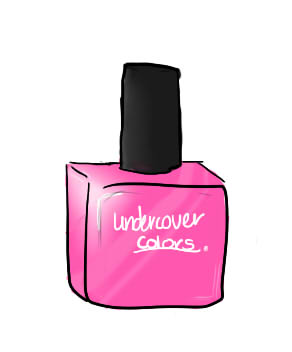New anti-rape product causes controversy
A new date rape prevention method is set to help women feel safer. But, is it creating new ways to blame victims of sexual assault?
18 percent of women are assaulted in their lifetimes and 25 percent of college-aged women become victims of rape or attempted rape by the time they graduate, according to ABC News.
“Undercover Colors” is a nail polish developed by four students at the University of North Carolina.
According to their mission statement, they aspire to “invent technologies that empower women to protect themselves from this heinous and quietly pervasive crime.”
“Hopefully I wouldn’t have to use it,” says Jakob Starnes, junior. “I don’t see any flaws in it, but I’d rather live in a society where that sort of thing doesn’t happen.”
The polish allegedly detects common date rape drugs like Rohyphol, Xanax and GHB. A user simply dips their finger into a drink, and the color will change to alert them of the presence of the drug.
“It’s truly a great idea,” Heather Wakefield, chemistry teacher, said. “I don’t know exactly what it is chemically, but its really awesome [and] plausible that college kids could do that.”
The product won first place in NC State’s LuLu eGames, a competition in which students develop functional solutions to various world problems.
“I’m a huge fan. But we honestly shouldn’t have to prevent it,” Alex Goforth, junior, said. “We should educate more people about [sexual assault]. However, its still a very good, revolutionary product.”
Not everyone is so convinced. Maya Dunsenbery, executive director of popular blog Feministing, is certainly not excited. She points out the fallacies of detecting drugs that aren’t the key factors in date rape.
Ironically, drugs slipped into an alcoholic drink aren’t common. It’s mostly the consumption of the alcohol itself which rapists use to facilitate the assault.
The National Institute for Justice reported in 2007 that only 2.4 percent of female undergraduates who had been sexually assaulted suspected they had been slipped a drug.
Dunsenbery also criticizes that the polish may create a false sense of security for women who don’t know about the small probability that their drink will be spiked successfully.
Dunsenbery addresses the company directly, asking them if they thought at all about the repercussions of their product on the future victims of date rape.
She says women who are assaulted without wearing the preemptive nail polish will be blamed for not doing everything in their power to ensure their own safety.
Legions of popular feminists, like Dunsenbery, are criticizing what they believe to be another addition to the laundry list of things women are required to keep in mind to avoid assault.
They are also speaking out against products whose sole purpose is to prevent women from being raped.
They believe that innovative minds shouldn’t be developing more anti-rape products or creating new lists of “Do’s and Don’ts” for women to worry about as they simply walk down the street.
“It’s ridiculous,” Alex Goforth said. “[The problem is] some people just aren’t informed. They don’t understand that it can happen to anyone.”
Marci Robin, who writes for XoJane, an online women’s magazine, referred to these problems as a sexual assault epidemic, and claimed that the only way to stop placing the blame on women is to educate our men and boys not to rape at all.
“[But] its like our military,” Jakob Starnes said. “We won’t put down our guns and try to convince others not to attack. That’s just not going to happen.”


